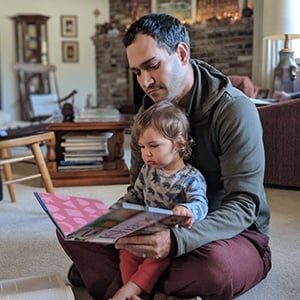My post last week on the litigation between Vizio and the Software Freedom Conservancy (SFC) over the General Public License (GPL) seems to have struck a nerve. There was a lot of sharing on LinkedIn and the fediverse, and I was interviewed on TechstrongTV about it. The Techstrong interview was fun to do, and worth a watch if the initial post caught your attention but you wanted to hear me expand more on similar themes (including contract versus copyright) presented with a slightly different spin.
With all the discussion, it felt like there were a few follow-up points worth highlighting.
- This ruling could end up being a Pyrrhic victory for the GPL: anything that strengthens the power of the GPL means that companies may increasingly consider alternatives to GPL-licensed code. That won’t be easy, of course, because the Linux kernel is licensed under the GPL and is so deeply entrenched in the industry. However, where non-GPL alternatives exist, like the BSD versions of Unix, Google’s Fuchsia, or the Rust-based uutils, this ruling could make those options more attractive.
- There are still many unanswered questions about this case, not just the ones raised in these early motions. For example, as pointed out by legal scholar James Grimmelmann, contracts must be “formed” to be enforceable; copyright law does not have that requirement. It is unclear whether merely downloading and using software meets the traditional tests for contract formation, and it might even be a bad precedent for the rest of the web. Similarly, we don’t know how the intent of the contracting “parties” will be analyzed in a case where there are arguably tens of thousands of parties to the contract. Copyright law has evolved some doctrines to deal with this problem (for example, by treating directors as the important author even when movies involve hundreds or thousands of small creative acts and actors), but contract law (mostly) has not.
- Many people wanted to better understand the “risk” to them or their products. It’s important to note that there is no one “risk” for most legal problems like this one. Instead, there are two critical factors: the severity of a potential problem and the probability that the problem will actually occur. Good lawyers are usually careful to separate those two things, but all lawyers at least occasionally conflate the two. This ruling, if it holds, is a great example of a situation where the impact of legal compliance has not changed, but the probability of that impact occurring has changed radically. To put it another way, a lawyer’s core advice (“comply with the license!”) shouldn’t change at all; what will change, for non-legal decision-makers, is an awareness of how often they might get caught out if they don’t comply.
- SFC’s case explicitly disclaims copyright's financial penalties, and must do that in order to avoid getting treated as a copyright claim. As a result, the financial incentives that drive a lot of copyright litigation may not be there. This means that this likely won't become a litigation factory. That said, I’m sure Conservancy has thought through every angle on how they can convince the court to award them their costs—and if that is possible, it could change things. But it’ll be years before we know that. In the meantime, Conservancy is bracing for years of very expensive litigation, and asking for donations.
I’m sure there will be more to come on this case in the coming year, as well as developments in ML and AI licensing. Follow the Tidelift blog to see more on open licensing as the case, and the year, unfolds.


 50 Milk St, 16th Floor, Boston, MA 02109
50 Milk St, 16th Floor, Boston, MA 02109